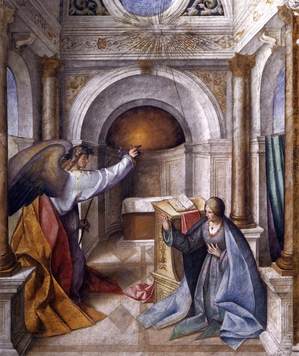
Sacred Liturgy & Sacraments: November 2012 Archives

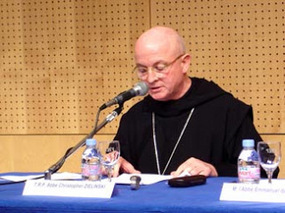 The Pope appointed Benedictine Abbot Christopher Michael John Zielinski to the be the Head of the Office (office manager) of the Congregation for Divine Worship and the Discipline of the Sacraments on Saturday, 24 November 2012. He is the number 3 person in the Congregation serving with Antonio Cardinal Cañizares, Archbishop Arthur Roche and Father Anthony Ward, SM.
The Pope appointed Benedictine Abbot Christopher Michael John Zielinski to the be the Head of the Office (office manager) of the Congregation for Divine Worship and the Discipline of the Sacraments on Saturday, 24 November 2012. He is the number 3 person in the Congregation serving with Antonio Cardinal Cañizares, Archbishop Arthur Roche and Father Anthony Ward, SM.Being really Catholic opens one's point of view to a great richness of the entire Church, East and West; being Catholic as John Paul II reminded us, is to breath with both lungs to invigorate the whole body. Most often Latin Catholics are too skeptical, too closed-minded to look beyond their parochial understanding of God and Church.
Each Sunday Jesuit Father Steve Bonian, a Maronite Catholic American priest reflects on the liturgical theology of his church. If you done a little reading in the liturgical history of the Church you will recall with joy that the Maronites have an incredibly rich liturgical tradition that ought to be appreciated more. For one thing the Maronite Liturgy is wonderfully Semitic in its pattern of prayer.
The Maronite Church, the majority of Catholics from Lebanon, celebrated yesterday the Sunday of the Consecration of the Church. The Roman Church does not have an equivalent liturgical observance, unless you make a connection with the Christ the King Sunday, the final Sunday of the Roman Church's year. The Maronite liturgical theology for the Sunday of the Consecration of the Church you note that "the Bride-Church re-consecrates herself and her children, the faithful, to Christ."
Father Bonian writes,
The letter to the Hebrews reminds us that the Temple in Jerusalem and it's rituals was only a temporal preparation for the "new order" that would be established between Christ and his Church and her children.
From now on the Children of God would worship him in Spirit and Truth on earth as in the Heavenly Jerusalem. For it is not God's will to dwell among stones, but in the caring hearts of his faithful people, and among them to establish his Kingdom. Our Church Community is this New Temple!
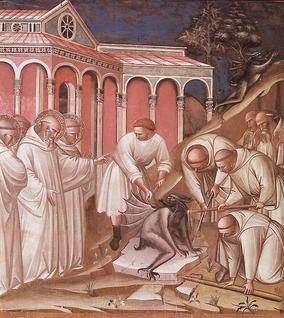 The Church is not monolithic: let's consider the various observances of feasts of All Saints and the Commemoration of the Faithful Departed (All Souls):
The Church is not monolithic: let's consider the various observances of feasts of All Saints and the Commemoration of the Faithful Departed (All Souls):- November 5: the Society of Jesus
- November 7: the Order of Preachers
- November 13: the Order of St Benedict; Order of St Augustine; the Trinitarian Order
- November 29: the Franciscan Families
- October 5: the Capuchin Order
- November 5: the Franciscan Families
- November 8: the Order of Preachers
- November 13: the Carthusians
- November 14: the Order of St Benedict; the Trinitarian Order
- November 15: the Order of Carmel
- November 16: the Servite Order
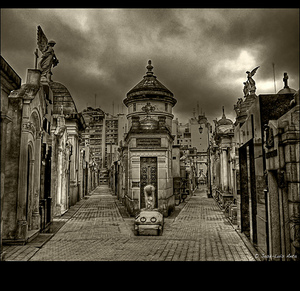
For more than a 1000 years Holy Church has remembered all the dead on one day and reminding the faithful what we believe in the death and resurrection of Jesus and thus for those who die in grace. Spend some time with the Mass Collect below. It is not merely remembering the dead, as good as it is, but also to hold fast to the faith we are Baptized into: Christ's death and resurrection.
As a way of entering into what the Lord desires, the Church formed the All Souls Indulgence. Read about it here. You have until November 8 to observe the conditions of the Indulgence.
God, who has raised Jesus from the dead, will give life also to your mortal bodies, through his Spirit that dwells in you.
With the Church we pray,
O God, who willed that your Only Begotten Son, having conquered death, should pass over into the realm of heaven, grant, we pray, to your departed servants that, with the mortality of this life overcome, they may gaze eternally on you, their Creator and Redeemer.
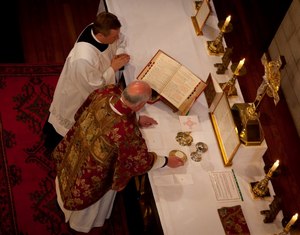 For Catholics it is Sunday, not the Sabbath (Saturday) in the technical sense as it applies to Jewish theology, but it is the day of worship of the One Triune God in the Triumph of death by death itself; it is Sunday which commemorates the Resurrection of Jesus, that is the fulfillment of the Paschal Mystery (life, death, Resurrection and Ascension of the Lord). Sunday is the perpetual Day of the Lord in practice.
For Catholics it is Sunday, not the Sabbath (Saturday) in the technical sense as it applies to Jewish theology, but it is the day of worship of the One Triune God in the Triumph of death by death itself; it is Sunday which commemorates the Resurrection of Jesus, that is the fulfillment of the Paschal Mystery (life, death, Resurrection and Ascension of the Lord). Sunday is the perpetual Day of the Lord in practice.


